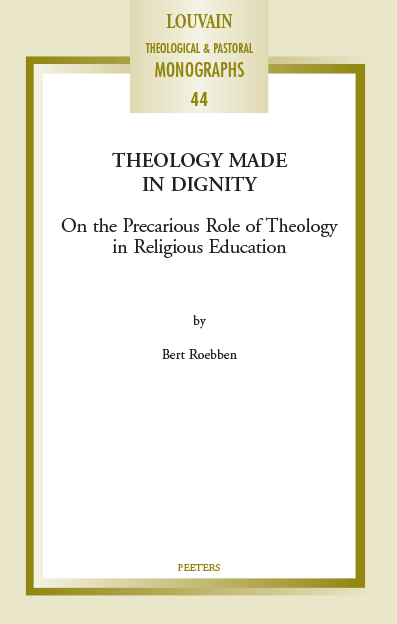In a post-secular society contemporaries are challenged to raise and face existential questions in the midst of a plurality of (religious and non-religious) worldviews. Children, adolescents and young adults are especially eager for orientation in negotiating this plurality. Religious Education in European schools can provide them with solid insights and a safe space to accept this challenge. In this book the narrative, communicative and spiritual dimensions of religious education are discussed. In the act of theologizing with children, adolescents and young adults, “in each other’s presence” and with a view to wisdom traditions, they are empowered to patiently engage in new ways. Alternative patterns of framing identity and community, experience and interpretation, transcendence and immanence, can then emerge. The book is rooted in the teaching praxis of the author and reaches out to the centers of initial teacher education, where future leaders learn to discover the theological dignity of religious education.

books & series
e-books
journals
eCSCO

 English
English
 add to cart
add to cart
